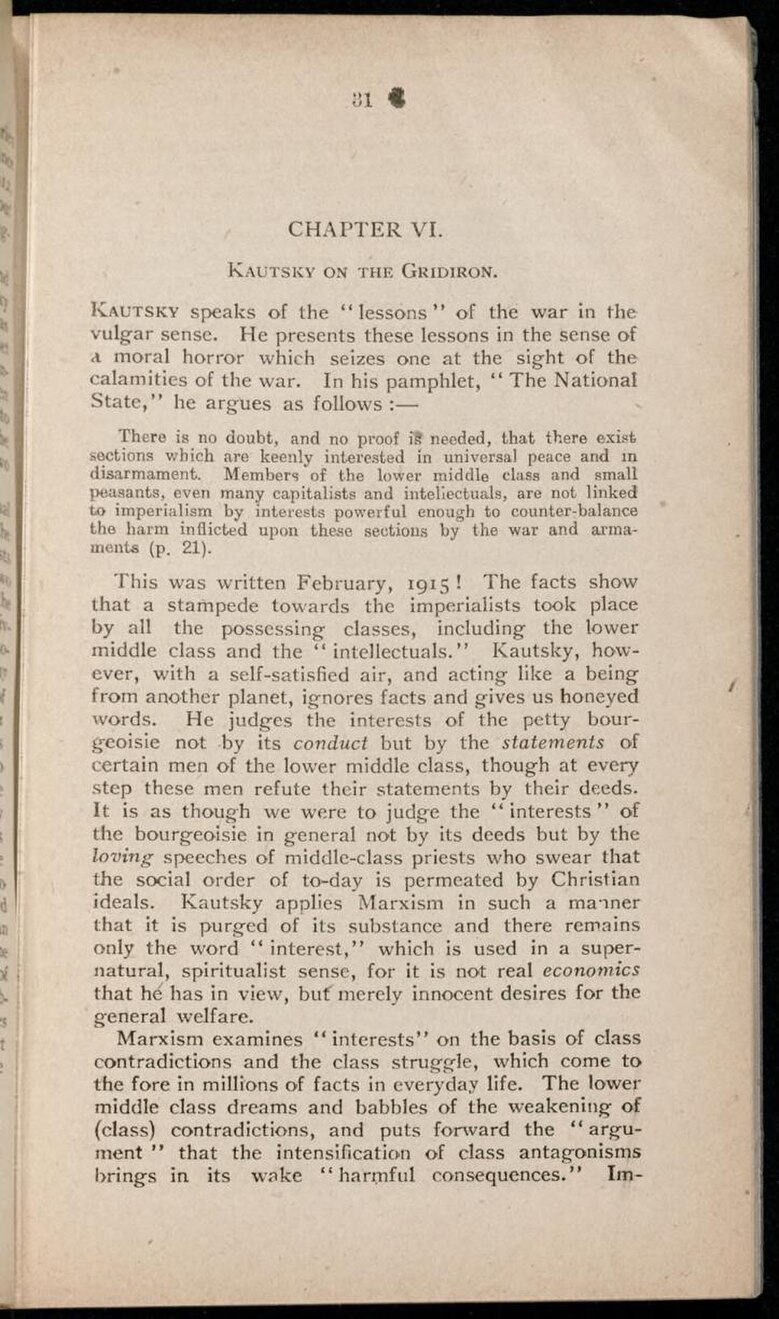31
CHAPTER VI.
Kautsky on the Gridiron.
Kautsky speaks of the "lessons" of the war in the vulgar sense. He presents these lessons in the sense of a moral horror which seizes one at the sight of the calamities of the war. In his pamphlet, "The National State," he argues as follows:—
There is no doubt, and no proof is needed, that there exist sections which are keenly interested in universal peace and in disarmament. Members of the lower middle class and small peasants, even many capitalists and intellectuals, are not linked to imperialism by interests powerful enough to counter-balance the harm inflicted upon these sections by the war and armaments (p. 21).
This was written February, 1915! The facts show that a stampede towards the imperialists took place by all the possessing classes, including the lower middle class and the "intellectuals." Kautsky, however, with a self-satisfied air, and acting like a being from another planet, ignores facts and gives us honeyed words. He judges the interests of the petty bourgeoisie not by its conduct but by the statements of certain men of the lower middle class, though at every step these men refute their statements by their deeds. It is as though we were to judge the "interests" of the bourgeoisie in general not by its deeds but by the loving speeches of middle-class priests who swear that the social order of to-day is permeated by Christian ideals. Kautsky applies Marxism in such a manner that it is purged of its substance and there remains only the word "interest," which is used in a supernatural, spiritualist sense, for it is not real economics that he has in view, but merely innocent desires for the general welfare.
Marxism examines "interests" on the basis of class contradictions and the class struggle, which come to the fore in millions of facts in everyday life. The lower middle class dreams and babbles of the weakening of (class) contradictions, and puts forward the "argument" that the intensification of class antagonisms brings in its wake "harmful consequences." Im-
